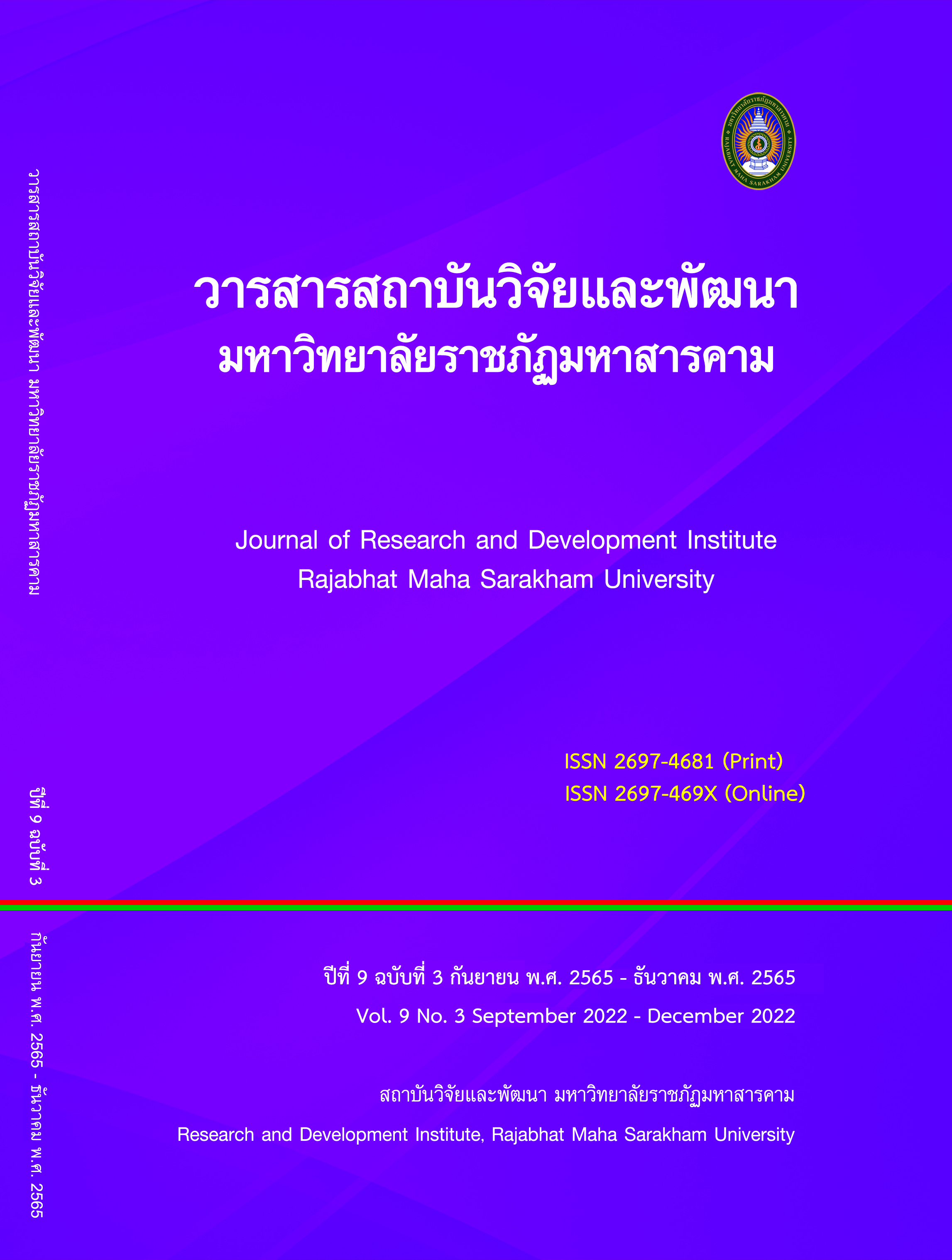Learning through actual situations of the sufficiency economy learning center for secondary school students
Keywords:
real-world situations learning, learning center for sufficiency economy, secondary school studentsAbstract
The objective of this research were 1) to synthesize concepts and theories related to the philosophy of sufficiency economy, learning management through real situations and the Sufficiency Economy Learning Center in School and 2) to analyze and propose a model of the learning management process through the actual situation of the Sufficiency Economy Learning Center for secondary school students. Researching topics Philosophical Theory of Sufficiency Economy Learning Management through actual situations and the Sufficiency Economy Learning Center in the school using a qualitative study approach. Create a series of questions for in-depth interviews with key informants, then analyze and propose a model of the learning management process based on the actual condition of the Sufficiency Economy Learning Center for Secondary School Students. A total of 16 people served as key informants: teachers, students, agricultural extension scholars, and administrators of local administrative organizations. Purposive sampling was used to conduct case studies of two schools, a school with a learning center based on the philosophy of sufficiency economy in schools. Used content analysis to inductively find knowledge, that is, first came into contact with the phenomenon of learning centers in concrete schools based on the sufficiency economy philosophy, then made a hypothesis, which was then scrutinized step by step until it was certain that it was a conclusive finding. The results of the study revealed that the learning process obtained from both case studies was consistent in the same direction. Thus, it can be summarized as a model of the learning process through the actual situation of the Sufficiency Economy Learning Center for suitable secondary school students that consists of 7 important elements 1) namely problem awareness 2) jointly discuss with stakeholders 3) set a solution 4) plan and take action 5) recording reflects and improves 6) revenue generation and revenue management and 7) dissemination to the public
References
Akararatanakon, K. (2018). Development of Educational Management Model for Learning Center According to the philosophy of sufficiency economy. Research and Development Journal development Suan Sunandha Rajabhat University. 10(2). 142-156.
Errington, E.P. 2010. Preparing graduates for the professions using scenario-based learning. Brisbane: Post Pressed.
I Suhaebar and I Isrokatun. 2019. Situation-based learning for self-regulated learning on mathematical learning. J. Phys.: Conf. Ser. 1318 012056
Inprasert, A. et al. (2021). Development of a Learning Center Management Model according to the Philosophy of Sufficiency Economy of Educational Institutions in the Eastern Region. Under the Office of the Basic Education Commission. E-Journal of Education Studies, Burapha University. 3(4), 15-30.
Kindley, R.W. 2002. Scenario-based e-learning: A step beyond traditional e-learning. Retrieved on March 18th, 2016, from http://www.learningcircuits.com/2002/ may2002/kindley.html
Office of the Education Council Secretariat. (2017). National Education Plan B.E. 2017 – 2036. Bangkok: Prikwan Graphic Company Limited.
Phothisita, P. (2006). The Science and Art of Qualitative Research. (2nded). Bangkok: Amarin Printing.
Tungkasmit, A. et al. (2011). The development of learning management in line with the Sufficiency Economy Philosophy. Veridian E-Journal, SU. 4(2). 288-301.
Downloads
Published
How to Cite
Issue
Section
License
Copyright (c) 2022 Journal of Research and Development Institute Rajabhat Maha Sarakham University

This work is licensed under a Creative Commons Attribution-NonCommercial-NoDerivatives 4.0 International License.
Articles that are published are copyrighted by the authors of the articles







